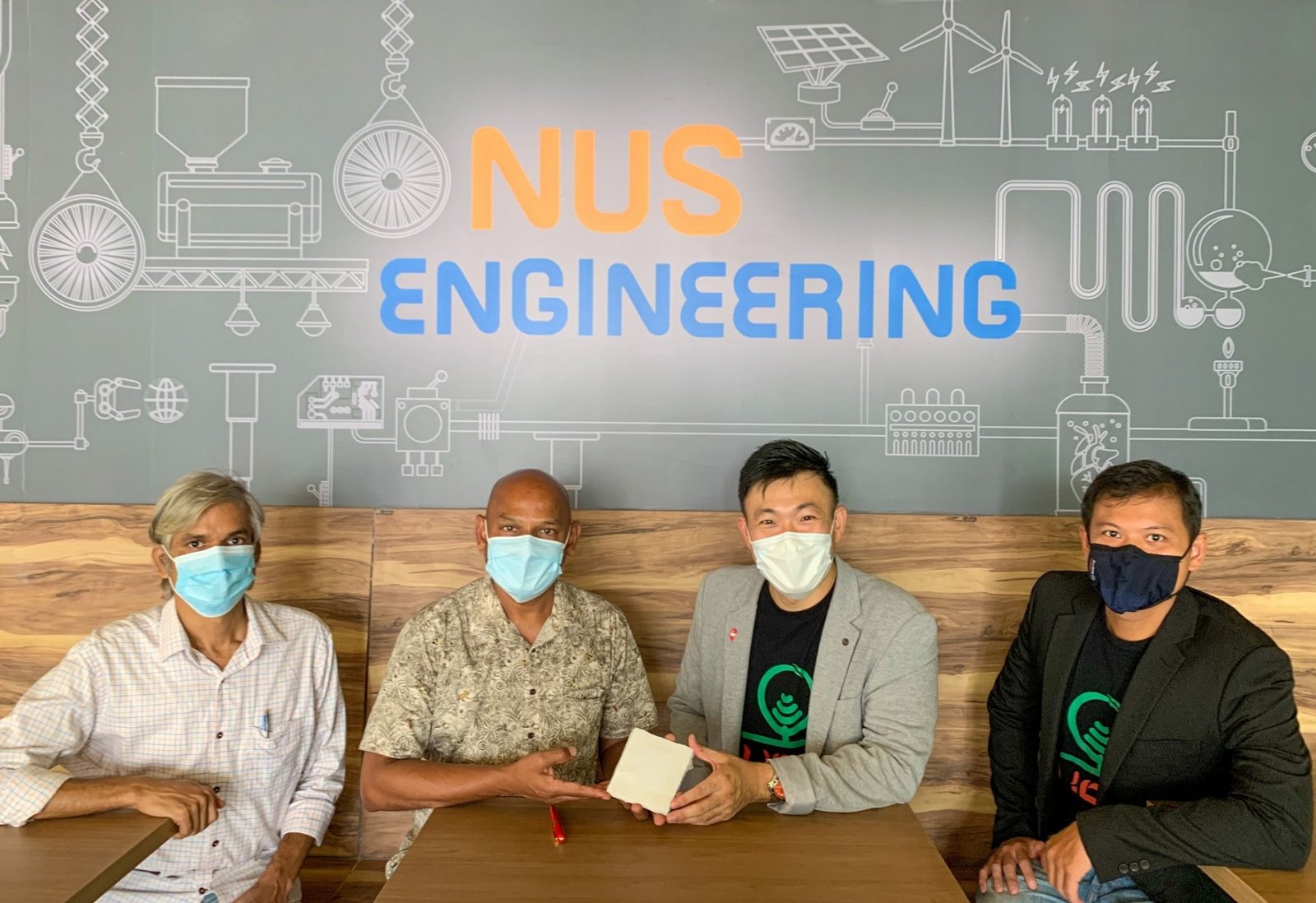Life3 Biotech (Life3) has signed a Memorandum of Understanding (MOU) with the Faculty of Engineering at the National University of Singapore (NUS) to incorporate electrospinning technology into food tech. It will be a world’s first foray to integrate electrospinning into comestibles, which aims to emulate the realistic bite of fish fillet and meat jerky with plant-based protein.
Traditionally, electrospinning has been used as a technique to produce thin fibrils with a high aspect ratio in protective masks, which is crucial in the current COVID-19 situation. This partnership will pioneer new research to explore the feasibility of producing food-grade plant-based proteins using the same technology. The aim is to create nano-sized protein strands that can better mimic the texture and bite of meat, as well as improve the nutritional value of foods.
Rising demand for alternative meat
As the world becomes increasingly concerned with its environmental footprint, there is a growing consensus to find viable alternative methods to satisfy the growing meat demand. This is why many have turned to plant-based meat alternatives, as it is vastly more sustainable than conventional meat. Research has shown that plant-based foods emit less greenhouse gases than meat and dairy, regardless of how they are produced.
Despite the rise to prominence of the plant-based protein industry, many consumers still find it hard to make the switch. As highlighted by a team of researchers at TNO, Netherlands, “One of the challenges of alternative protein sources, such as plant storage protein, green leaf protein or insect protein is to process it into a structurally appealing product.”
Novel way of producing alternative meat
Currently, most alternative proteins have a different fibrillary structure from conventional meat, which is acknowledged to play an essential role in giving texture and bite to protein products. This is where electrospinning aims to bridge the gap.
Electrospinning is able to create alternative proteins that can replicate the texture of conventional meat, similar to fish fillet and meat jerky. It is capable of producing nanofibers while incorporating functional benefits into foods, targeted at boosting health and reducing the risk of developing chronic diseases. This has been proven by the team from NUS and Life3 Biotech in their current research of electrospinning protein fibres with collagen.
Electrospinning systems are also able to lower carbon footprint, decrease energy cost, improve process efficiency, and ultimately reduce raw materials wastage. It is a commercially viable process which can be scaled-up easily to manufacture in large quantities. By harnessing electrospinning technology, this partnership aims to propel plant-based protein into mainstream culture, and to lower the barrier for the public to incorporate plant-based proteins into their diet.
Renowned expert and leader in electrospinning, Professor Seeram Ramakrishna from the NUS Department of Mechanical Engineering, who is also Director of the Centre for Nanofibers and Nanotechnology at NUS, is overseeing this research together with Senior Research Fellow Dr Subramanian Sundarrajan. Prof Seeram is the Chair of the NUS Circular Economy Taskforce, Chairman of the Institution of Engineers Singapore’s Sustainable Manufacturing Technical Committee, as well as an advisor to the Ministry of Sustainability and Environment, Singapore.
“The food tech industry has huge potential to revolutionise the way we view nourishment. We are pleased to bring our rich experience in electrospinning to this partnership, and Life3 has been instrumental in providing us with food manufacturing process knowledge to work on adapting electrospinning for the food tech space,” said Prof Seeram. “Results of our first trial helped us to better understand the formation of fibrous structure using different plant proteins via the electrospinning process, and will enable us to move towards optimising the process for upscaling. We are confident that our method will soon bear fruit, with Life3 coming in with their expertise to harness the technology for large-scale manufacturing.”
“Life3 has always been on the lookout for new frontiers in the food tech industry, and we are honoured to partner Professor Seeram and his team in NUS for this collaboration. We believe that electrospinning has the ability to mimic the texture of conventional meat, and enrich plant-based proteins’ nutritional value. We hope to incorporate this technology into our products in the near future,” shared Mr Ricky Lin, CEO and Founder of Life3 Biotech.
The research will continue to fine-tune the electrospinning process and expand its capabilities to create the different fibre textures, lengths, flavours as well as the encapsulation of other sustainable plant-based ingredients for functional health benefits. The final phase will delve into the upscaling requirement in order to make electrospinning a commercially viable food manufacturing process.







